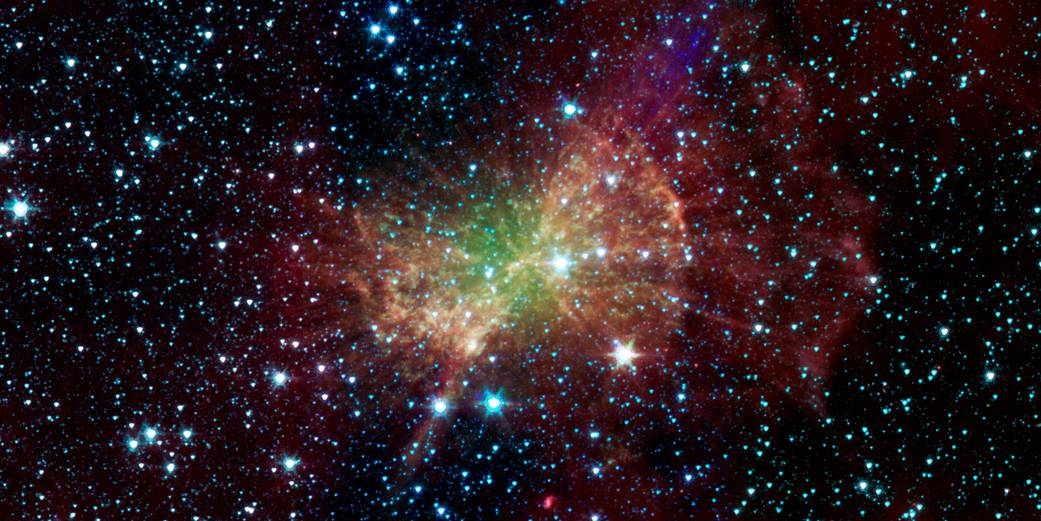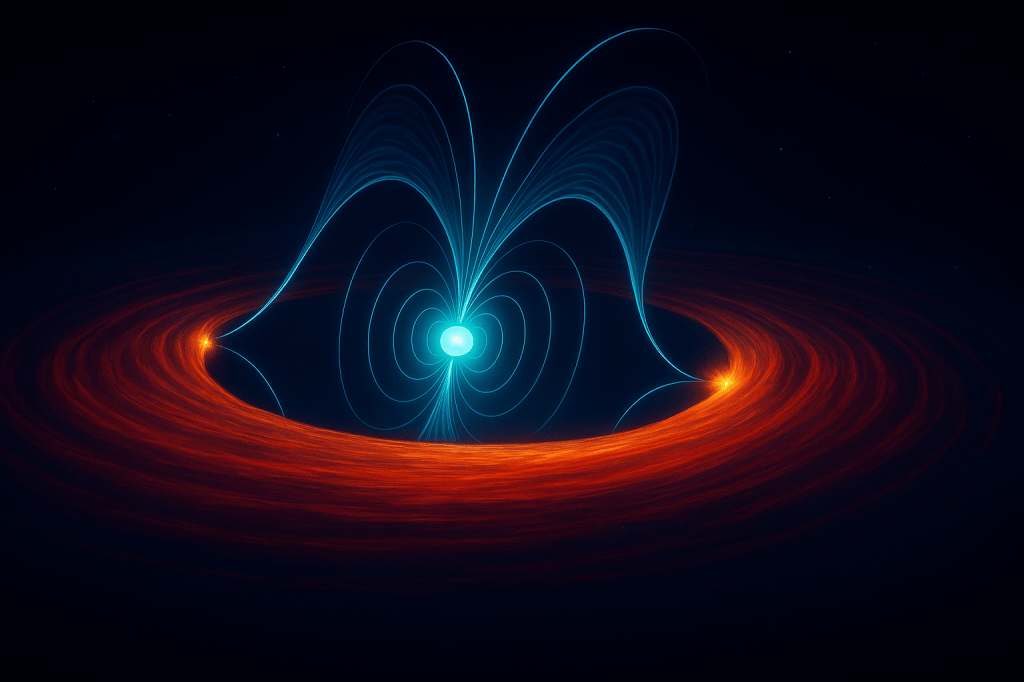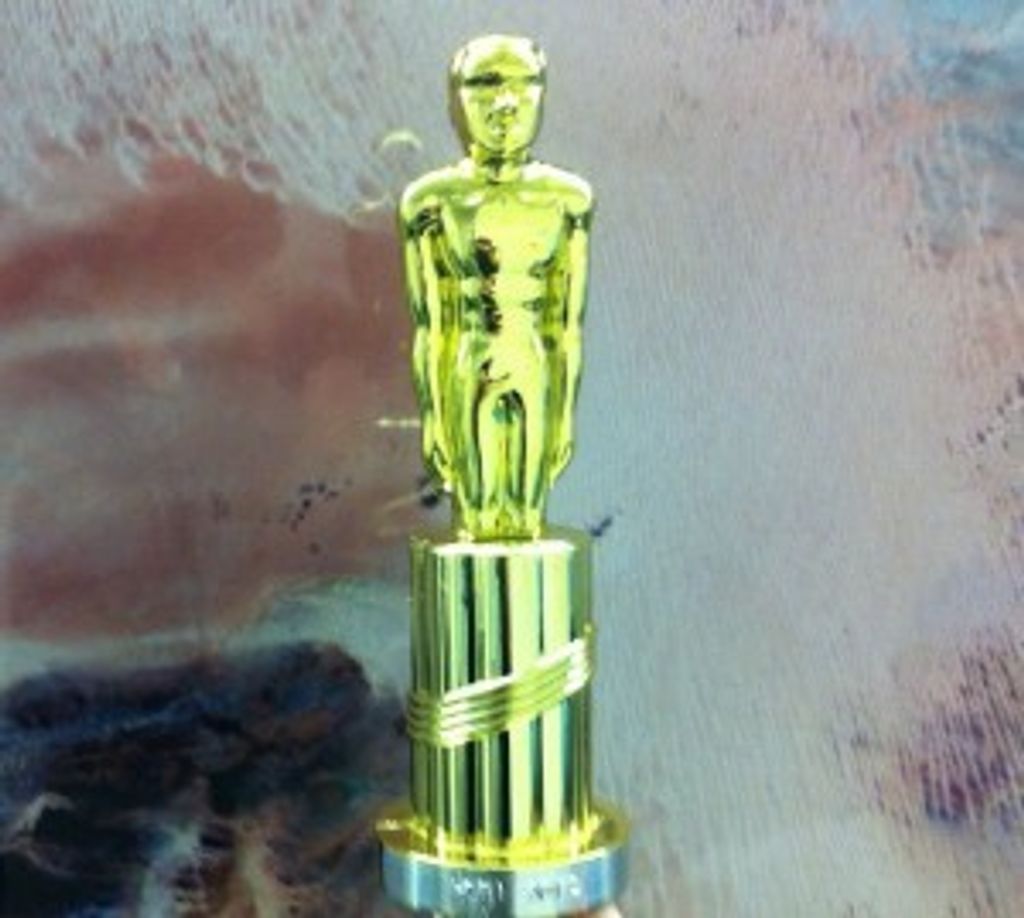
The Dumbbell Nebula, also known as Messier 27, pumps out infrared light in this image from NASA’s Spitzer Space Telescope. The nebula was named after its resemblance to a dumbbell when seen in visible light. It was discovered in 1764 by Charles Messier, who included it as the 27th member of his famous catalog of nebulous objects. Although he did not know it at the time, this was the first in a class of objects, now known as planetary nebulae, to make it into the catalog.
Planetary nebulae, historically named for their resemblance to gas-giant planets, are now known to be the remains of stars that once looked a lot like our sun. When sun-like stars die, they puff out their outer gaseous layers, which are heated by the hot core of the dead star, called a white dwarf, and shine with infrared and visible-light colors. Our own sun will blossom into a planetary nebula when it dies in about five billion years.Image Credit: NASA/JPL-Caltech/Harvard-Smithsonian CfA

























